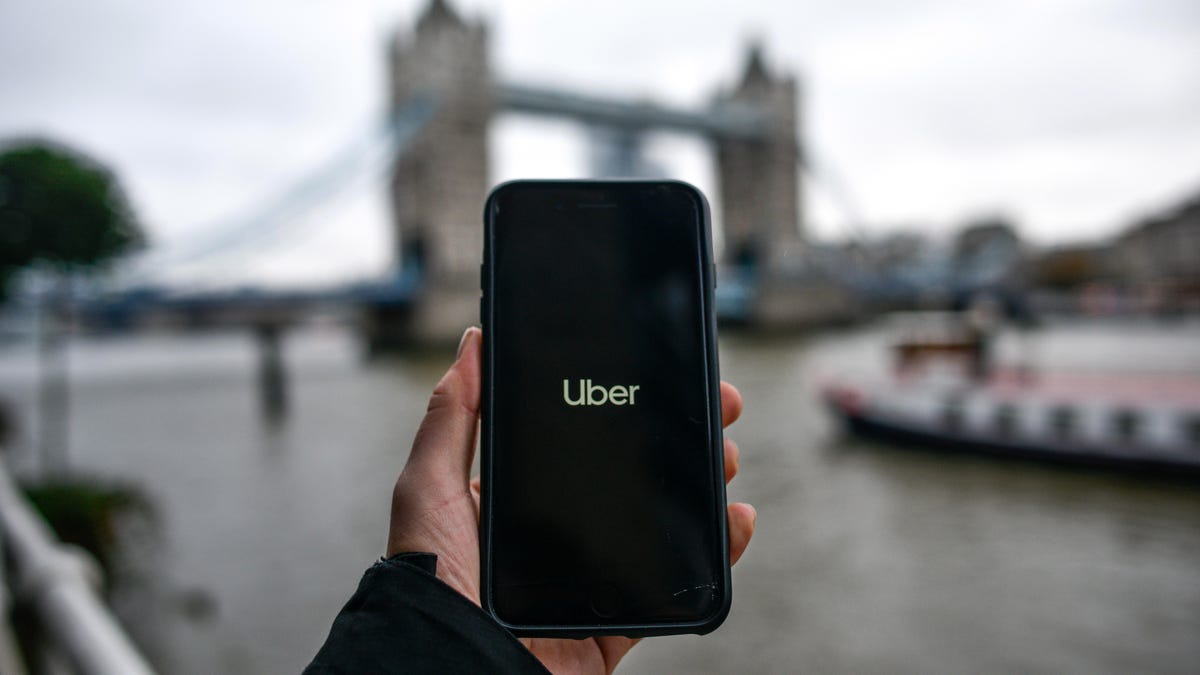Some Uber drivers use bogus identities and shared accounts
Turns out that unauthorized drivers using fake identification isn't just a London problem.

London authorities say 14,000 trips were made by unauthorized drivers in the city.
Uber faced a blow on Monday when London regulators refused to renew the ride-hailing company's operating permit because of safety concerns. The biggest issue lawmakers cited was drivers using false identities as they ferried unsuspecting passengers.
At least 14,000 trips were made by unauthorized drivers, according to city regulator Transport for London. The way it worked is this: A number of drivers would share one account, and whenever one of them went out to drive, they'd upload their own photo to fool passengers. The unauthorized drivers were able to pose as vetted, licensed and insured, when often they weren't.
Turns out, the issue of fraudulent Uber drivers isn't isolated to London.
Instances of unauthorized drivers, including convicted felons, being on the Uber app have surfaced in other cities, including San Francisco, Houston and Boston. Sometimes drivers reportedly used another person's license and Social Security number to sign up for the ride-hailing service. Other times they used fake names. And on some occasions they bought bogus identities on the internet.
"For bad actors, it's not hard to circumvent Uber's signup process since it's designed to get drivers onboarded as quickly as possible and with as little hassle as possible," said Harry Campbell, a ride-hail driver who runs the popular Rideshare Guy blog. "From time to time, Uber uses a 'selfie check' to verify the driver, but it's not clear how accurate this method is."
Both Uber and Lyft have come under fire for not doing enough to make rides safer. Hundreds of passengers and drivers have alleged assault during rides over the past few years. Several lawsuits have been brought against the two companies saying passengers were raped, kidnapped and groped by drivers.
To combat this, Uber has steadily added new safety features to its app. It's introduced an emergency 911 button, anonymized rider pickup and drop-off locations and made it easier for riders to share trip information with friends and family. Jamie Heywood, Uber's regional general manager for Northern and Eastern Europe, said the company has set the standard on safety for London rides.
"Over the last two months we have audited every driver in London and further strengthened our processes," he said in an emailed statement. "We have robust systems and checks in place to confirm the identity of drivers and will soon be introducing a new facial-matching process, which we believe is a first in London taxi and private hire."
The company said it's constantly updating its technology and processes to prevent fraud and scams. In addition to working with fraud detection agents for manual reviews, Uber said it uses automated machine learning systems to analyze more than 600 different signals that indicate fraudulent behavior.
But con artists' schemes tend to be ever-evolving.
From aliases to the dark web
Uber was in the headlines in August after a driver in Melbourne, Australia, pleaded guilty to driving a drunk passenger to his home and raping her. The driver was fraudulently using a friend's Uber account while working for the ride-hailing service, according to The Age.
City regulators across the US have also found drivers using fake names. One driver in Houston who cleared Uber's background checks in 2015 reportedly had 24 aliases, five listed birthdates, 10 listed Social Security numbers and an active warrant for his arrest.
In 2017, Colorado regulators found that Uber allowed 57 drivers with criminal or motor vehicle offenses onto its network. One of the drivers was a convicted felon and habitual offender who used a fake name to sign up for the app. Similarly, a convicted murderer in Los Angeles also used a false name to get onto the ride-hailing service.
Also in 2017, when Massachusetts started doing its own background checks, it found 51 registered sex offenders driving for Uber and Lyft. At that time, lawmakers also located a Boston driver who used a fake name to sign up for Uber and allegedly raped a passenger.
The schemes can also be a lot more complex. Earlier this year, NBC Bay Area's investigative unit found that unlicensed drivers were able to get around Uber's and Lyft's background checks by using stolen identities. Apparently, brokers would sell ride-hailing accounts in online chat groups to potential drivers who wanted to conceal their identities.
With this type of scam, the unauthorized driver's profile picture and license plate number would match what's on the app, which would easily trick passengers. Uber said it deactivated several of these accounts after NBC notified it of the issue.
It's likely not all drivers are using fake accounts for nefarious or illegal means. Some drivers may just want to get into Uber's system and earn money driving but can't because they don't have the correct documentation or can't pass Uber's background checks.
Campbell, who runs the Rideshare Guy blog, said he's heard of drivers purchasing fake identities on the dark web and applying for Uber with those documents. He's also heard of drivers sharing accounts as in London. When you have a platform as big as Uber, he said, such activity is bound to happen.
"Most rides go off without a hitch," Campbell said. "But when you have 45,000 drivers in the city of London, it's important to design systems that assume that some of those drivers will try and take advantage."
Lyft declined to comment.
Originally published Nov. 26, 7:12 a.m. PT.
Update, 10:50 a.m.: Adds that Lyft declined to comment.

